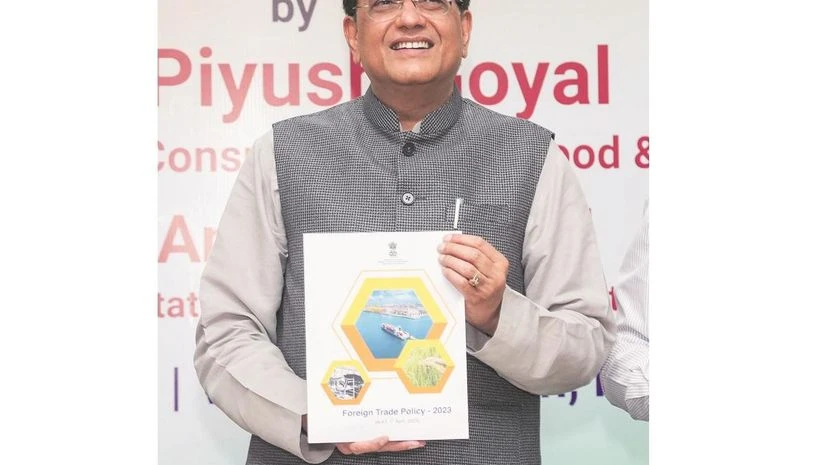Marking a significant change from the previous one, the Centre on Friday unveiled the Foreign Trade Policy (FTP) 2023 without a sunset clause, with a focus on boosting e-commerce exports to at least 10 per cent of the $2-trillion goods and services exports target by 2030.
The new policy blends into the government’s priority of moving from an “incentive-based regime” to a “remission and entitlement-based regime”, thereby making it compliant with World Trade Organization (WTO) rules.
The long-anticipated FTP, which comes after several extensions to the earlier FTP, originally for the 2015-20 period, also focuses on making districts export hubs, ease of doing business, and a special one-time amnesty scheme for default in export obligations.
“We have to meet our export targets. We will achieve $2 trillion in exports by 2030, but we should ensure merchandise exports don’t fall behind services exports,” said Commerce Minister Piyush Goyal, while unveiling the FTP on Friday.
For the first time adding a separate chapter on digital commerce in the FTP, the commerce ministry said all policy benefits would be extended to e-commerce exports. The value limit for exports through courier service has now been increased from Rs 5 lakh to Rs 10 lakh per consignment.
“Necessary enablement of IT systems in Department of Commerce, Post, CBIC (Central Board of Indirect Taxes and Customs) to be completed in six months. To streamline e-commerce export facilitation, guidelines are being formulated in consultation with other ministries to facilitate further exports under e-commerce,” the FTP said.
More From This Section
E-commerce exports are set to grow to $200-300 billion by 2030 from $2-5 billion now.
Designated e-commerce export hubs, with warehousing facilities, will be notified to help e-commerce aggregators in easy stocking, customs clearance, and returns processing.
In line with the Vivaad se Vishwas scheme, the government will launch a one-time amnesty measure for default in export obligations under Advance Authorisation and Export Promotion Capital Goods (EPCG). This is set to benefit 2,500-3,000 exporters and will be available till September. Cases under investigation for fraud, however, will not be applicable.
The FTP has also taken steps to support and encourage the rupee to become an international currency. As of now, the Reserve Bank of India (RBI) has approved 18 banks opening vostro accounts to settle international trade in rupees. India will be willing to trade in rupees with nations grappling with foreign exchange crises.
The merchanting trade that does not touch Indian ports, but has an Indian intermediary, will be allowed under the new FTP. It will be subject to compliance with RBI guidelines except for certain categories of goods.
The policy for exporting dual-use items under Special Chemicals, Organisms, Materials, Equipment and Technologies (SCOMET) will be consolidated at one place.
Industry and experts welcomed the policy.
“The continuation of schemes such as Advance Authorisation and EPCG with procedural ease will continue to promote exports and foster ease of doing business. Another big item has been the launch of the amnesty scheme,” said Abhishek Jain, tax partner, KPMG.
Sanjay Budhia, chairman, national committee on exports and imports, Confederation of Indian Industry, said: “The policy has strong emphasis on reduction in transaction costs, e-initiatives, micro, small, and medium enterprises, internationalisation of the rupee, and e-commerce exports, which could be a game changer to put India at a leadership position in the global exports map.”

)
